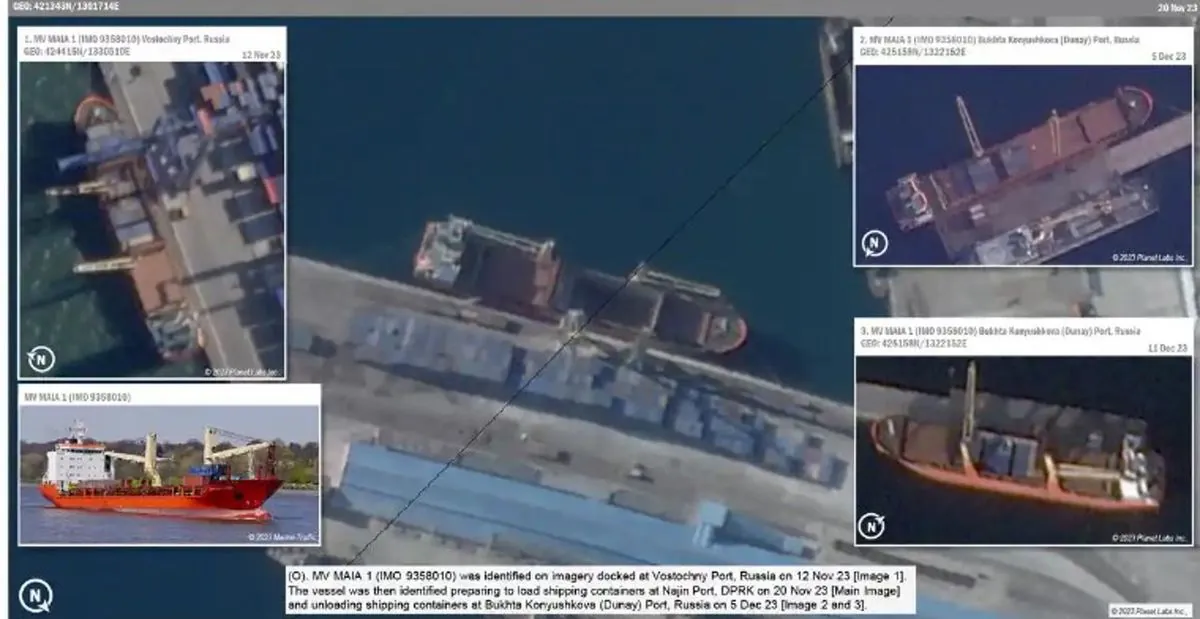The ongoing conflict in Ukraine has taken an unexpected turn, with North Korea emerging as a crucial supplier of ammunition to Russia. This development has raised significant concerns among Ukrainian and U.S. officials, who view these arms deliveries as a major threat to Kyiv's defense capabilities.
Since mid-2022, evidence suggests that thousands of shipping containers have been transported from North Korean ports to Russia, carrying substantial quantities of munitions. U.S. State Department analysts estimate that at least 11,000 containers have arrived, potentially containing between 1.6 million to 6 million artillery shells. This influx of ammunition has had a noticeable impact on the battlefield, with Ukrainian intelligence chief Lt. Gen. Kyrylo Budanov reporting visible effects within a week of new shipments arriving.
The significance of these deliveries lies not in their quality but in their quantity. Despite many of the North Korean shells being old, degraded, or defective, the sheer volume has allowed Russia to maintain a significant artillery advantage over Ukrainian forces. Experts estimate that this advantage could be as high as 3-to-1 or even greater in some areas.
Michael Kofman, a senior fellow at the Carnegie Endowment for International Peace, suggests that North Korean deliveries may have provided a substantial portion of the shells used by Russian forces over the past year. This has been particularly evident in the intense fighting in southeastern Ukraine, where Russian forces recently captured the town of Vuhledar on October 2, 2024, after two years of resistance.
The partnership between Russia and North Korea extends beyond arms deliveries. In June 2024, the two countries signed a rejuvenated defense pact, raising concerns about a growing anti-Western coalition that may include China and Iran. This alliance has implications not only for the Ukrainian battlefield but also for the geopolitical landscape of Northeast Asia.
North Korea's motivations for this partnership are multifaceted. Beyond receiving much-needed food and energy supplies, Pyongyang may be seeking advanced military technology from Russia. The isolated regime, which has been under UN sanctions since 2006 due to its nuclear program, could potentially benefit from a wide range of technological transfers, including satellite technology, missile guidance systems, and even submarine technology.
The deepening relationship with Russia may also provide Kim Jong Un with increased international legitimacy. The June 2024 defense pact included a clause supporting North Korea's entry into international organizations such as BRICS, potentially offering Pyongyang a platform in an emerging anti-Western coalition.
This partnership has raised concerns about North Korea's future behavior in the region. Since the end of bilateral talks with the United States in 2019, Kim has shown signs of adopting a more aggressive stance. In late 2023, he delivered a speech defining South Korea as essentially a foreign country with which North Korea is in belligerent relations.
The implications of this Russia-North Korea alliance extend far beyond the immediate conflict in Ukraine. It represents a shift in the global balance of power, with potential consequences for regional stability in Northeast Asia and the broader international order. As the situation continues to evolve, the international community remains watchful of the developing partnership between these two nations and its potential impact on global security.
"Addressing North Korean (and Iranian) arms deliveries to Russia should be the first priority for the U.N. Security Council."
As the world grapples with these developments, it is crucial to consider the broader context of North Korea's history and capabilities. The country has conducted six nuclear tests between 2006 and 2017 and possesses one of the largest standing armies in the world. Its unique Juche ideology, emphasizing self-reliance, has shaped its approach to international relations and domestic policy for decades.
While the full extent of technology transfers from Russia to North Korea remains unclear, the potential for significant advancements in North Korean military capabilities cannot be ignored. This partnership could have far-reaching consequences for regional security and the global non-proliferation efforts that have been in place since North Korea's withdrawal from the Nuclear Non-Proliferation Treaty in 2003.
As this situation unfolds, the international community must remain vigilant and united in addressing the challenges posed by this evolving alliance between Russia and North Korea. The impact of their cooperation extends far beyond the current conflict in Ukraine, potentially reshaping the geopolitical landscape for years to come.
